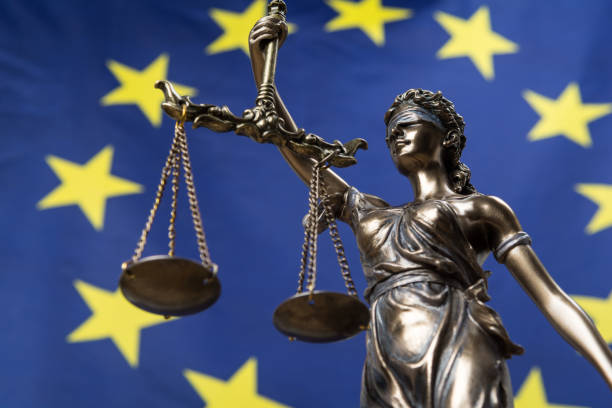The European Union has taken a monumental step in the realm of artificial intelligence by approving the Artificial Intelligence Act, a groundbreaking legislation that aims to shape the development of AI technologies in a human-centric manner. This landmark legislation, the world's first comprehensive AI law, emphasizes ethical standards and prioritizes the well-being of individuals and society as a whole.
The AI Act categorizes AI systems into four distinct groups based on their potential risk levels, each subject to varying degrees of regulatory control. Low-risk applications, such as AI in video games or spam filters, will operate without specific requirements or regulations. In contrast, high-risk AI applications, including those used in medical devices or critical infrastructure, will face stringent obligations such as utilizing high-quality data and providing transparent information to users. Certain AI applications deemed to pose unacceptable risks, such as social scoring systems and specific types of predictive policing, are outright banned under the legislation.
The AI Act's provisions extend to generative AI models, the technology that underpins AI chatbots capable of producing lifelike responses, images, and more. Developers of general-purpose AI models will be mandated to disclose detailed information about the data used in training these systems and comply with EU copyright laws. Notably, AI-generated deepfake content, including images, videos, or audio of real individuals, places, or events, must be clearly labeled as artificially manipulated. Companies deploying powerful AI systems will be required to assess and mitigate associated risks, report any significant incidents, implement cybersecurity measures, and disclose the energy consumption of their models.
The impending enforcement of the AI Act, expected to come into effect by May or June 2024 following final procedural steps, is poised to have a profound impact on numerous businesses operating within the European Union. The legislation introduces rigorous requirements, significant extraterritorial implications, and the potential for substantial fines reaching up to 35 million euros or 7% of global annual revenue, whichever is higher, for non-compliance.
The AI Act's risk-based approach to AI regulation is designed to strike a balance between fostering innovation and ensuring safety and transparency. The legislation's classification of AI systems into four categories allows for a nuanced understanding of the potential risks and benefits associated with each application. By categorizing AI systems based on their risk levels, the EU has created a regulatory framework that is both adaptable and comprehensive, capable of addressing the diverse range of AI applications in the market.
The AI Act's emphasis on transparency and accountability is another key aspect of the legislation. Developers of AI systems will be required to provide clear information about the capabilities and limitations of their products, enabling users to make informed decisions about their use. This transparency extends to the data used in training AI models, with developers obligated to disclose the sources and quality of their data. By promoting transparency and accountability, the EU aims to build trust in AI technologies and ensure that they are developed and deployed in a responsible manner.
The AI Act's provisions on generative AI models are particularly noteworthy, as these systems have the potential to significantly impact society. By requiring developers to disclose detailed information about their models and comply with EU copyright laws, the legislation seeks to prevent the misuse of AI-generated content and ensure that creators are properly credited for their work. Furthermore, the requirement to label AI-generated deepfake content as artificially manipulated is an important step in combating disinformation and preserving the integrity of digital content.
The AI Act's extraterritorial implications are significant, as the legislation will apply to any company that offers AI-powered products or services within the EU, regardless of their location. This global reach reflects the EU's commitment to promoting ethical AI development and ensuring that AI technologies are used responsibly, even beyond its borders.
The European Union's pioneering move with the Artificial Intelligence Act sets a new global standard for AI regulation, emphasizing the importance of ethical and responsible AI development. By prioritizing human values and societal well-being in the deployment of AI technologies, the EU is leading the way in shaping a future where artificial intelligence serves as a force for good, innovation, and progress. The AI Act's comprehensive approach to AI regulation, its emphasis on transparency and accountability, and its global reach make it a landmark legislation that will have far-reaching consequences for the AI industry and society at large.





